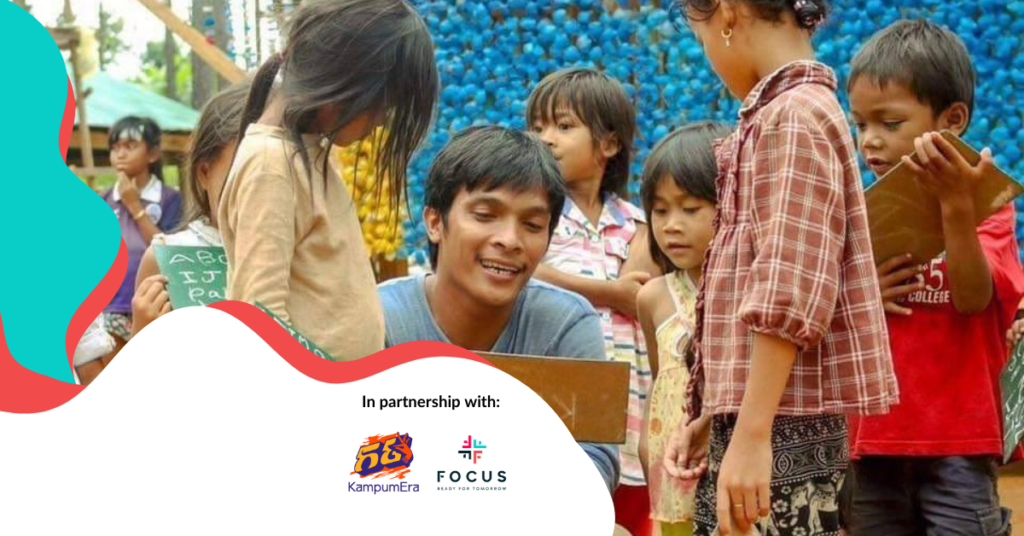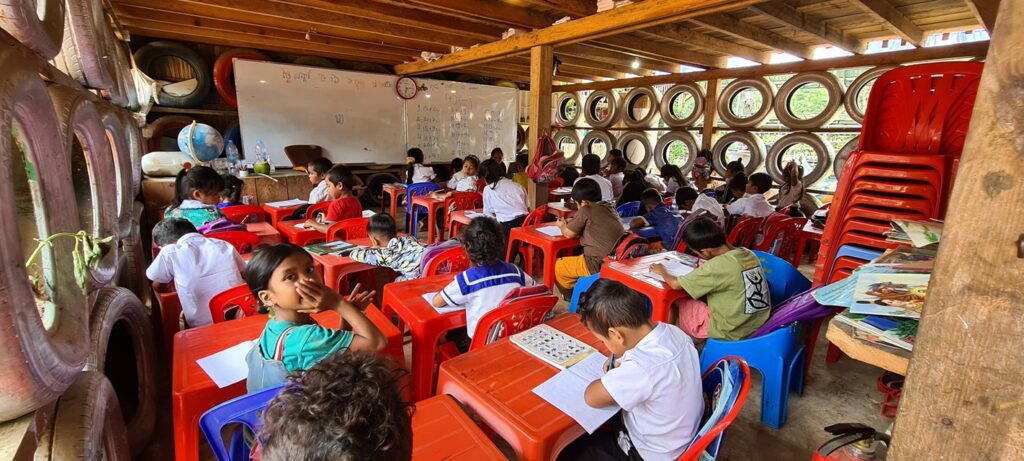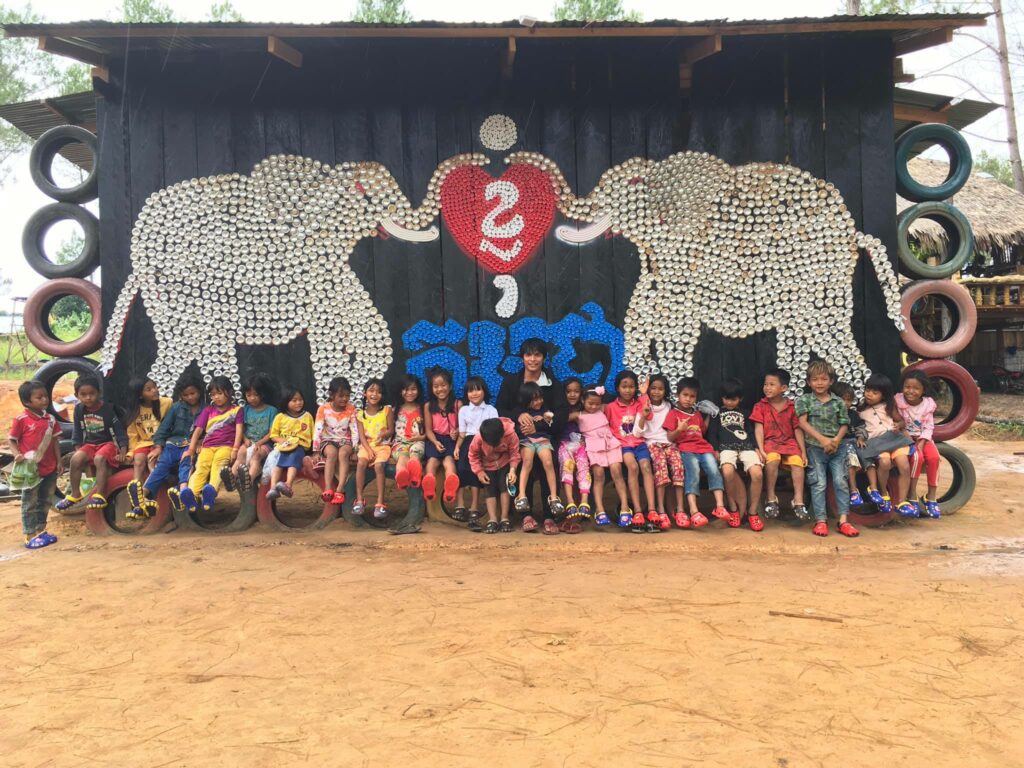Ouk Vanday, who practices a zero-waste lifestyle himself, wants to channel his message of forest conservation and trash management in the forest through Coconut School, a community learning center made from recycled trash collected in the Kirirom National Park.

In 2014, Ouk Vanday quit his job as a hotel general manager to fully commit to environmental advocacy. This 38-year-old educator teaches Khmer, English, environmental studies, and waste management to young children at Coconut School Kirirom.
Three years after his resignation from the hotel job, he established Coconut School Kirirom as an informal education center that provides free education, free meals, basic hygiene, and shelter for young children in Kampong Speu’s Kirirom National Park. The children living in the community on the mountain can attend the school in exchange for trash that they collect around the area.
Focus’ Vorn Chanmakara speaks with Mr. Ouk Vanday, the founder of Coconut School Foundation, about his journey to inspire not just Cambodians but everyone to reduce daily waste and learn how our actions can have a negative impact on the future.
Why did you build Coconut School from solid wastes such as recycled plastic, glass bottles, and old tires?

Photo by: Coconut School Foundation
The idea of recycling used materials to decorate Coconut School was to save money, so this project could inspire others, especially children, to reduce waste and recycle. From cutting down waste to reusing and recycling the materials we can find around our house, these are ways to save our earth from being polluted.
What does protecting the environment mean to you?
I protect the environment by teaching young children to understand how waste could be harmful to our health and environment, as well as, how forests are vital to our lives. I am working on preventing possible threats to the environment by influencing young children to see a better, brighter, and possible future. They grow up seeing all the threats that their family had been doing to the environment, but they don’t have to follow in their footsteps at all. I could define “protecting the environment” within my work. I prevent young children from illiteracy so that they could have a better future.
On the same page, I also am educating them to see how forests are the lungs of our Earth. Therefore, forests are our lungs; it is more important than the rice you eat; the water that you drink; the house or car that you wish you want; forests are the lifesavers that benefit us more than we could ever imagine.
How has this work changed your life, influenced the people around you, and affected your community?
Surprisingly, waste is still increasing even though I have been working on this. Some people have misunderstood my key messages which are to reduce daily solid waste and to recycle. They think that Coconut School and I are the only ones to take on the big job of recycling used materials but saving this planet requires everyone, not just me, to be responsible for their actions and waste production.
However, I do see some improvement. Young children here are trying to learn, to ask questions, to do something about the responsibility of waste management and the harms that we can do to the Earth. The youth are really supportive and trying to change their behaviors on using single-use plastic products. Moreover, some communities are working on their waste management by recycling used products like what we do at Coconut School.
What have you learned from your work?
So far, my work has taught me that obstacles are the supplements to my life. Those hard times have taught me to learn from myself and to go forward in order to solve problems.
What kind of change do you want to see in the future?
All I can think is to do the right things and take care of this planet. I want to tackle the behaviors of some Khmer people who are still irresponsible with their reckless waste management. I would like to see their growing awareness in order to make a better place for their children in the future. More importantly, I wish to see policymakers and powerful countries be less ignorant and take full responsibility for their actions of polluting the environment for the sake of economic competition and power.

Photo by: Coconut School Foundation’s Facebook page
Why should the youth care about protecting the environment?
[Protecting the environment] is necessary for the future of humanity. Without the earth where else could we thrive? Mars? Only a handful of rich people would be there. Taking care of our only home, Earth starts with each of us; it is for the future of our children’s children. I think in the next ten or twenty years if we don’t take action now, the earth will be demolished.



